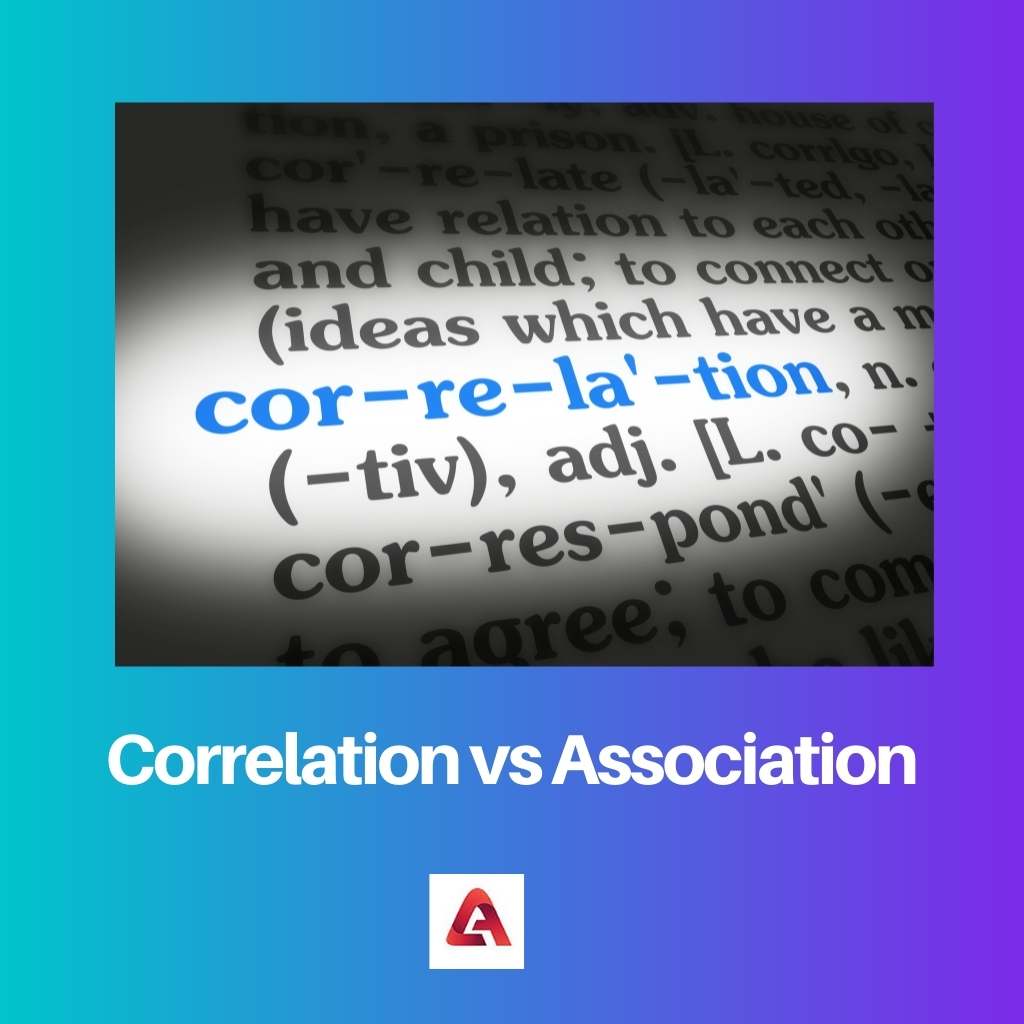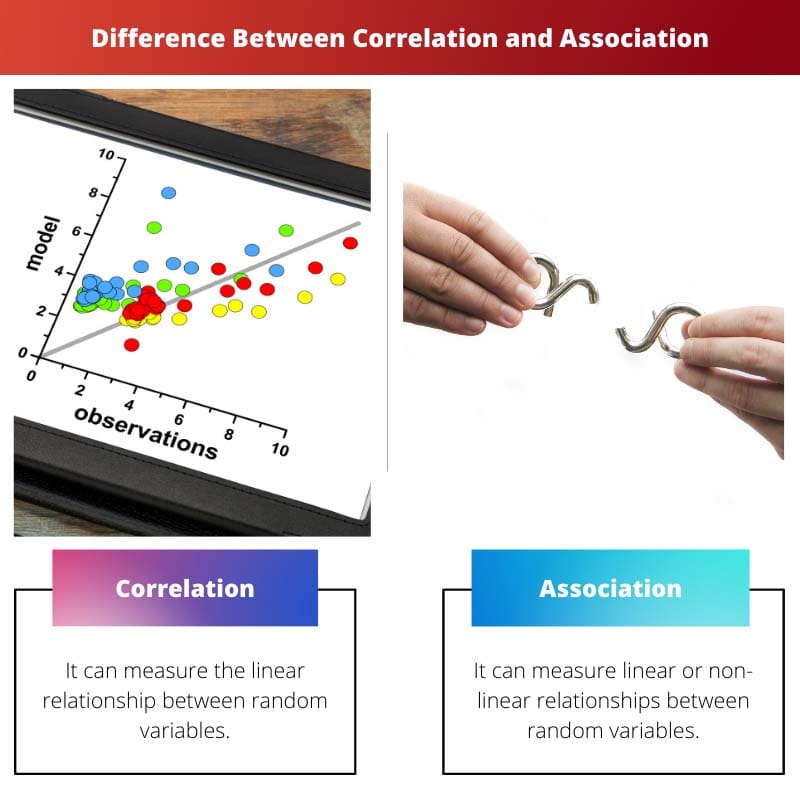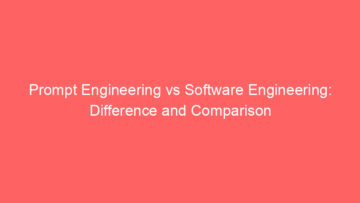People these days use the terms correlation and association interchangeably in everyday life and in statistics. Uses them should be clear with the differences between the terms and their meaning.
Correlation and association have various similarities but are still different concepts in statistics and English.
Key Takeaways
- Correlation refers to the degree to which two variables are related, while Association refers to a general relationship between two variables.
- Correlation is a statistical measure that quantifies the relationship between two variables, while Association can be qualitative or quantitative.
- Correlation is used in scientific research to identify the relationship between two variables, while Association is more commonly used in business and social science research.
Correlation vs Association
The difference between correlation and association is that correlation defines the linear relationship between two variables, and it quantifies this relationship with the use of numbers between -1 and 1. The association defines any general relationships between two random variables and is not quantifiable.

Correlation is a relationship between 2 or more objects in English. It is an exact term consisting of one meaning.
Statistics measures a linear relationship between variables while quantifying it with numbers. It is useful in both statistics and science.
On the other hand, association is the act of associating various variables. It is a vague term that doesn’t have an exact meaning to it.
Statistics measure a general relationship between two or more variables. It is a concept that is hardly used in science, but it is used in psychology.
Comparison Table
| Parameters of Comparison | Correlation | Association |
|---|---|---|
| Statistics | It can measure the linear relationship between random variables | It can measure linear or non-linear relationships between random variables. |
| Meaning | It is a measurement of association. | It is a concept. |
| Scientific Usage | It is used in statistics and science. | It is hardly ever used in science, but it is used in psychology. |
| Quantification | It quantifies a relationship between 2 variables with the help of a number between -1 and 1. | It doesn’t use any numbers to quantify a relationship between variables. |
| English | An exact term with one meaning. | A vague term that doesn’t have an exact definition but can describe different things. |
| General Definition | It is a relationship between 2 or more objects. | It is the act of associating. |
What is Correlation?
Correlation is a statistical measure between two random variables having a linear relationship. Correlation quantifies the relationship but does not reveal whether x causes y or vice versa.
Or whether the association is the result of a third component. Correlation can quantify the relationships using numbers between -1 and +1.
The common correlation between 2 variables is PPMCC stands for Pearson product-moment Correlation Coefficient. It is considered as the precision of the least-squares fit the original information.
It is computed by dividing the covariance ratios of different variables in the quantitative dataset by their square roots. In English, it is defined as a mutual relationship between 2 or more things.
Correlation has 3 possible results. These are positive correlation, negative correlation, and zero correlation.
When one variable increases, the other variable decreases. This is referred to as a negative correlation.
A zero correlation indicates no relationship exists between the two assessed variables. A correlation can visually be expressed by drawing a scattergram.
This helps indicate the strength and direction of the correlation between the variables.
What is Association?
In English, the association is a vague term that doesn’t have just one exact meaning. It can also mean a group of people with a common goal or similar interests.
It is an act of associating. In statistics, association indicates a relationship between 2 variables.
It refers to a relationship without elaborating on it and does not have to be a causative tie. In statistics, association indicates a relationship between 2 variables.
It defines a general relationship that can be both linear and non-linear. A few examples of association in statistics are Goodman’s and Kruskal’s Lambda and Spearman’s rho, distance correlation, etc.
Association can be determined with the help of various different analyses, like correlation analysis, regression analysis, etc. Which method do you use to determine the association between variables.
And the strength of the association depends on the variables’ data characteristics. The most common ways to analyze association are Spearman rank-order correlation coefficient.
Relative risk and odds ratio, serial correlation, Pearson’s correlation coefficient. In psychology, the association is a mental link formed by specific encounters connecting concepts or mental states.
Associations can be found in a lot of different schools of thought, like behaviorism, psychoanalysis, structuralism, social psychology, etc.
Main Differences Between Correlation and Association
- Correlation measures the linear relationship between 2 random variables. On the other hand, association measures a general relationship between 2 random variables, which means that it can be measured in both linear and non-linear relationships.
- Correlation can be explained as a measurement of association with various tools that can help measure the magnitude. Association, however, is a concept.
- Correlation can be used in science and statistics. The association is hardly used in science, but it is fairly used in psychology in various schools of thought.
- Correlation quantifies a relationship between two variables with the help of a number between -1 and +1, whereas association can’t quantify a relationship between variables using a number.
- From this point of view, correlation is an exact term with proper meaning, whereas association means an act of associating.
- Correlation is a relationship between 2 or more objects, and association is the act of associating.






